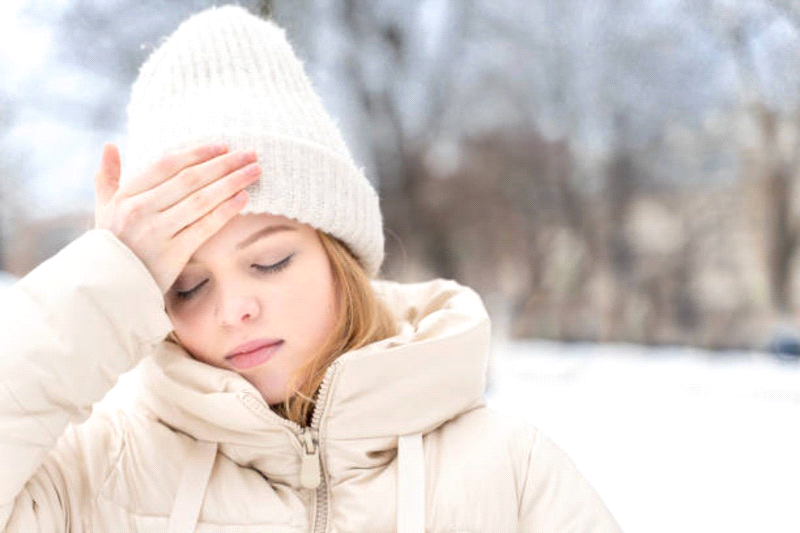The winter months can be a trying time for most - the days are shorter, the weather is colder, and it's tough to find motivation. But did you know that those cold months could actually have an effect on your mental health? Many people struggle with Seasonal Affective Disorder (SAD) or “Winter Depression” during this period of year due to a variety of potential causes; some of them may even surprise you! In this blog post, we’ll discuss 10 surprising culprits behind Winter Depression so you can better understand why these feelings come up and how to manage or prevent them.
1. Unpredictable Weather:
The sound of thunder, the flash of lightning, the pattering of rain on the roof - these are all telltale signs that unpredictable weather can cause a great deal of stress and anxiety. And it's not just because we might be caught in a downpour on our way to work or have to cancel outdoor plans. It's because unpredictable weather can mess with our sleep p-patterns, mess with our energy levels and mess with our moods.
2. Reduced Sunlight:
During winter, temperatures drop and days become shorter, meaning that we get less time exposed to natural sunlight. This lack of sunshine can lead to significant changes in melatonin production - a hormone associated with mood regulation - resulting in increased feelings of depression, particularly during the weeks leading up to Christmas.
3. Social Isolation:

With the colder months come fewer opportunities to go out and socialize with friends, family, and acquaintances. Many people find themselves feeling lonely and disconnected from others as a result of this social isolation, which can lead to depression in some cases.
4. Seasonal Allergies:
For those who suffer from seasonal allergies, this time of year can be a real struggle. Constant fatigue, throbbing headaches and sinus pressure can take a toll on one's physical health, which in turn can affect their mental wellbeing.
5. Increased Alcohol Consumption:
The holiday season is upon us, and with it comes increased alcohol consumption at social events like office parties and family gatherings. While it's okay to indulge in moderation, it's easy to go overboard during this time of year. Not to mention, increased alcohol consumption can be used as a coping mechanism for the holiday season stress, leading to depression in some cases.
6. Declined Activity Level:
As the temperatures drop and winter approaches, many people find themselves feeling their activity levels take a hit. The cold weather can be quite discouraging, making it hard to gather the motivation to get up and get moving. It's important to remember that we don't have to completely give up on physical activity during the winter months in order to stay healthy and avoid depression.
7. Lack of Nutrients:
Many people find themselves eating less nutritiously during this time of year due to a lack of time or resources. This can lead to a deficiency in essential vitamins and minerals, which can have an adverse effect on one's mental health.
8. Holiday Stress:
The Christmas season is often associated with feelings of joy and cheer; for many people this time of year can be overwhelming. From the hustle and bustle of shopping to hosting Christmas dinner, the holidays can be a source of tremendous stress, which can lead to feelings of depression.
9. Financial Stress:

The holiday season is all about giving and receiving gifts, but for many people it's also a time of financial strain. With travel costs, gift purchases, hosting parties and more, this time of year can take a heavy toll on one’s wallet, which can in turn lead to depression.
10. Loss of a Loved One:
The holiday season is also a time when we experience loss and grief in an even greater capacity than usual. The death of a loved one can cause deep sadness and depression during this time of year, making it difficult to enjoy the joys of the season.
Conclusion:
As we can see, the winter season can have a variety of detrimental effects on our mental health, ranging from decreased serotonin levels to increased alcohol consumption. These issues can be exacerbated by unpredictable weather patterns or seasonal allergies. It is important to recognize and be aware of how winter can affect our emotional wellbeing and apply strategies to combat those issues. Whether it be socializing with friends and family during the holiday season, or exercising outdoors despite cold temperatures, there are ways to seek out the support or activities we need to promote good mental health in winter.




